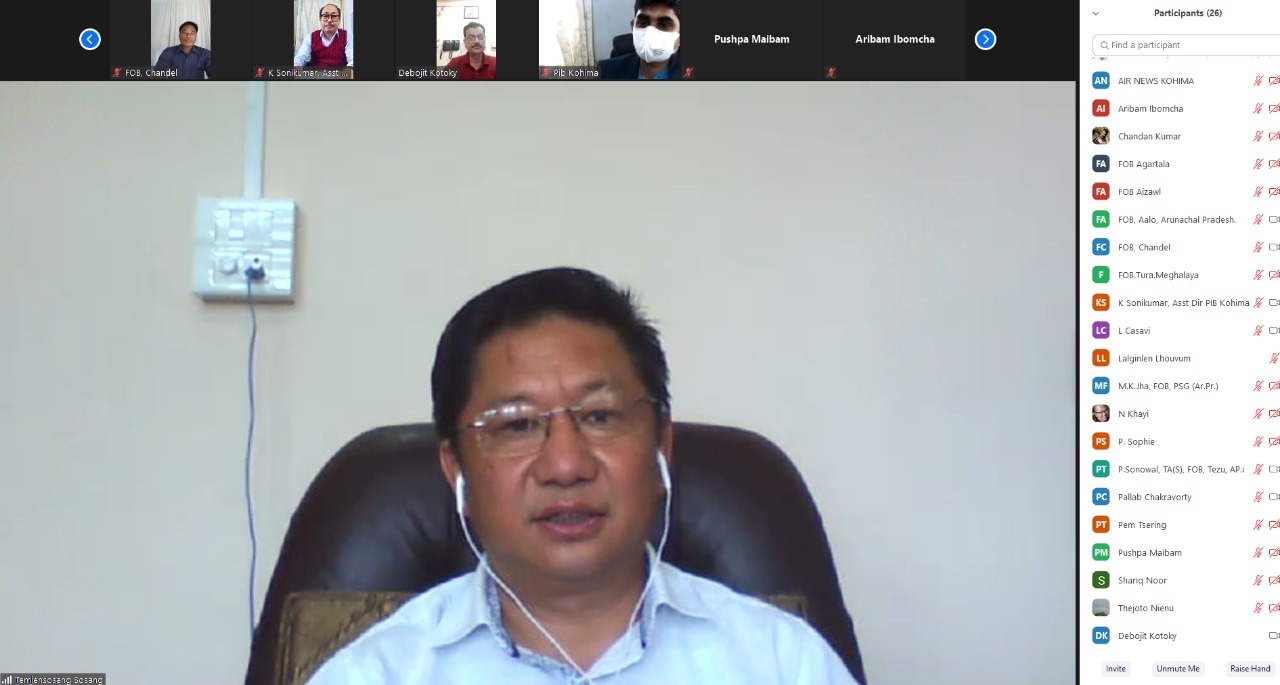It is unfortunate that leading economists of the world promote greed as the basis of economic growth, turning it into a “Greedonomics”. Economics should be based on need, not greed. We require “Needonomics” and not “Greedonomics”
 Dr. M. M. Goel
Dr. M. M. Goel

To ensure Atmanirbharta (Self-reliance), we have to understand, analyse, interpret and adopt needonomics (economics of needs) necessary for the survival, existence and excellence of every human being. We need to know ‘Cobra effect’ making solutions worsening the problem with unhappy consequences and understand chakravyuha challenges of the economy and research solutions in needonomics. To obtain atmanirbharta, we need REACH model consisting of five steps including read gita, empowerment with enlightenment, altruistic approach, commitment and holding needs.
The relevance of needs and its economics is as old as civilization. The adage ‘Necessity is the mother of invention’ rightly explains the importance of needs. For performing any economic or non-economic activity, we require resources which are certainly limited and to be spent judiciously confining to needs. To justify needonomics, there is no dearth of literature. Needonomics is based on sloka no 22 of chapter 9 of Bhagvad Gita. It has to be noted that the logo of Life Insurance Corporation (LIC) of India ‘Yogakshemam Vahamyaham’(Your welfare is our responsibility) is taken from Gita. Needonomics says no to greed authenticating economic thoughts of Mahatma Gandhi ‘”The world has enough for everyone’s needs, but not everyone’s greed.”
Maharaja Agrasen had the honest goal of providing relief with the marvellous tradition of giving one coin and brick to any newcomer for starting business and lives in his kingdom Agroha. He was a strong protagonist of spending 25 per cent of the incomes on the welfare of society. He also made a case for 25 per cent savings for future which is necessary and sufficient condition for coping up the crisis of covid kind in present times. The business community must learn corporate social responsibility (CSR) as a necessary and sufficient condition for inclusive growth (care for the cared less and use of the used less). We are required to spend on CSR with self-regulation, transparency and compliance.
It is worth quoting Prof. Jeffrey Sachs Columbia University (2011) “If greed dominates, the engine of economic growth will deplete resources, push the poor aside, and drive us into social, political, and economic crisis. The alternative is political and social cooperation, both within countries and internationally. There will be enough resources and prosperity to go around if we convert our economies to renewable energy sources, sustainable agricultural practices, and reasonable taxation of the rich. That is a path to shared prosperity.” Thus, there is a need for conservation and judicious use of resources for development.
Prof. J.K. Mehta (1930’s) developed the theory of wantlessness as a counter to the western economists’ theory of unlimited wants as the prime mover of economic activity. According to him, a wantless individual would have satisfied his elemental desires for necessities. To reach a state of wantlessness one needs disciplined lifestyle by understanding the temporary nature of satisfaction one gets from the growing wants beyond basic necessities. Meaning thereby, we have to confine to needs.
Needonomics requires actions suiting circumstances as a common sense approach of ‘cut the coat according to the cloth’. This proverb applies not only to individuals but also to business establishments. Of course, a company may raise a loan to expand or diversify its business. But it must do so judiciously; otherwise, it can even go bankrupt. Even the government of a nation has to keep in mind its total resources while spending. If it does not do so and goes on borrowing recklessly, it could result in severe economic problems for the nationals.
Income can be compared to output, and expenses to input. If the input exceeds the output, then there is bound to be a financial crunch. This will lead to debts and worries. And if the same situation persists, resulting in the accumulation of debts, it would shatter the economy. So, it is our duty to chalk out a strategy in such a way like cutting the cloth to the requisite measurement that both ends can be met with. It is applicable to any economy in the world.
We should adopt needonomics with accuracy, brevity and clarity. The fundamentals of needonomics are required to be understood and adopted for the solution of economic and non- economic problems in the society consisting of consumers, producers, distributors and traders. Altruism, basic needs, and commitment for the society are the implications of needonomics. We have to focus on the need based priorities in choices as stakeholders of the economy.
The joy of freedom cannot be found in the art of living for the livelihood but with the art of giving by adopting the lifestyle of altruism (not me but you) with limited use of resources for the self. The excessive dependence on loans can be reduced to a considerable extent by adopting needonomics.
To create capacity in the economy, we have to build infrastructure which requires investment and is dependent on the domestic saving rate. This is possible with expenditure policy based on needonomics. We can increase the capacity of investing, saving and donating for public wellbeing only by confining to needs. There is no substitute for the control of expenditure and consumption for investment to enhance the capacities and capabilities of the economy.
Needonomics is required for saying no to most of the problems caused by Greedonomics (economics of greed) including violence, terrorism, exploitation, deprivation, discrimination, discontent and corruption of all kinds prevailing in the society. Endless greed is the real menace facing the world today.
A consumer is expected to behave in the market with rational behaviour which falls in the domain of consumer psychology as the study of why and how people buy things in the market (online and offline). Every consumer should consume goods and services as per their needs. It is unfortunate that leading economists of the world promote greed as the basis of economic growth, turning it into a “Greedonomics”. Economics should be based on need, not greed. We require “Needonomics” and not “Greedonomics”.
The economy can be people friendly and socially beneficial if undertaken in accordance with NAW approach of marketing (Need, Affordability and Worth of the goods and services). The market should satisfy the essential needs of the people, create employment opportunities and be utilitarian.
To implement ‘Needonomics’, the strategy of spiritually guided materialism (SGM) flowing from sloka no 22 of chapter 9 of Gita is to be understood and adopted. As stakeholders of the economy, we have to become street SMART (simple, moral, action oriented and transparent) consumers, producers, distributor and traders with spiritual input flowing from the epics including Gita and Anu-Gita.
To work for Atmanirbharta without worries, we have to be soul conscious which is the real education needed today in addition to proper, productive and practical (3P) use of head, heart and hands (3H).
The biggest challenge of Atmanirbharta is overpopulation which must be controlled with public cooperation. We have to address illness in behaviour of all the stakeholders in the economy including consumers, producers, distributors, traders, policymakers and politicians. Free rider problem inbuilt in the economy calls for effective implementation of the user pay principle.
To become vishavguru, we have to learn gurudom of the self as the soul with awakening, awareness and alertness. We need faith in the capabilities and capacities with a disciplined lifestyle by the stakeholders.
To conclude, we have to adopt NAW approach of marketing for creating demand by the consumers for coping up the recession in the economy. The domain of needonomics covers all aspects of the economy and is ethical, nonviolent and spiritual in nature. We have to care the cared-less and use the used-less human resources as a duty and not charity. To ensure Atmanirbharta, needonomics is necessary and sufficient with fearlessness and calls for work without worries in all sectors of the economy. We can achieve morality, opulence, victory and empowerment for the socio-economic development with a common sense approach of needonomics and by becoming street smart stakeholders.





